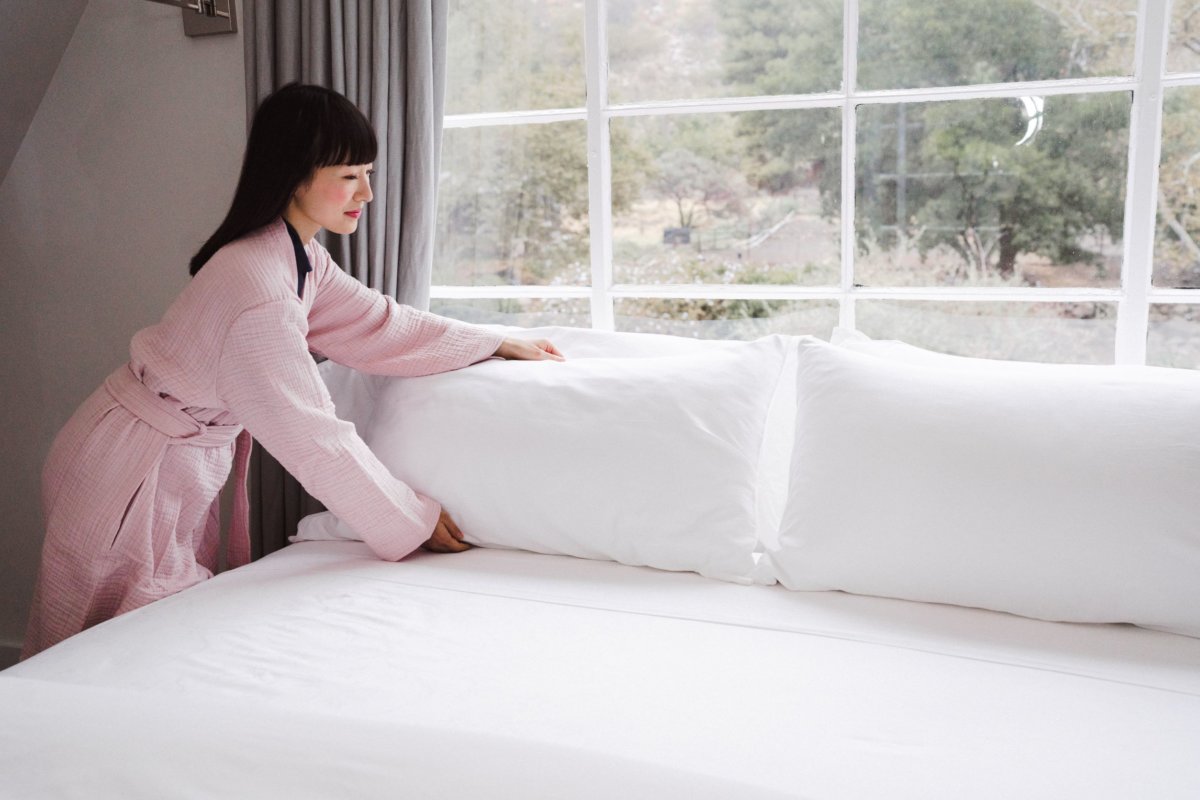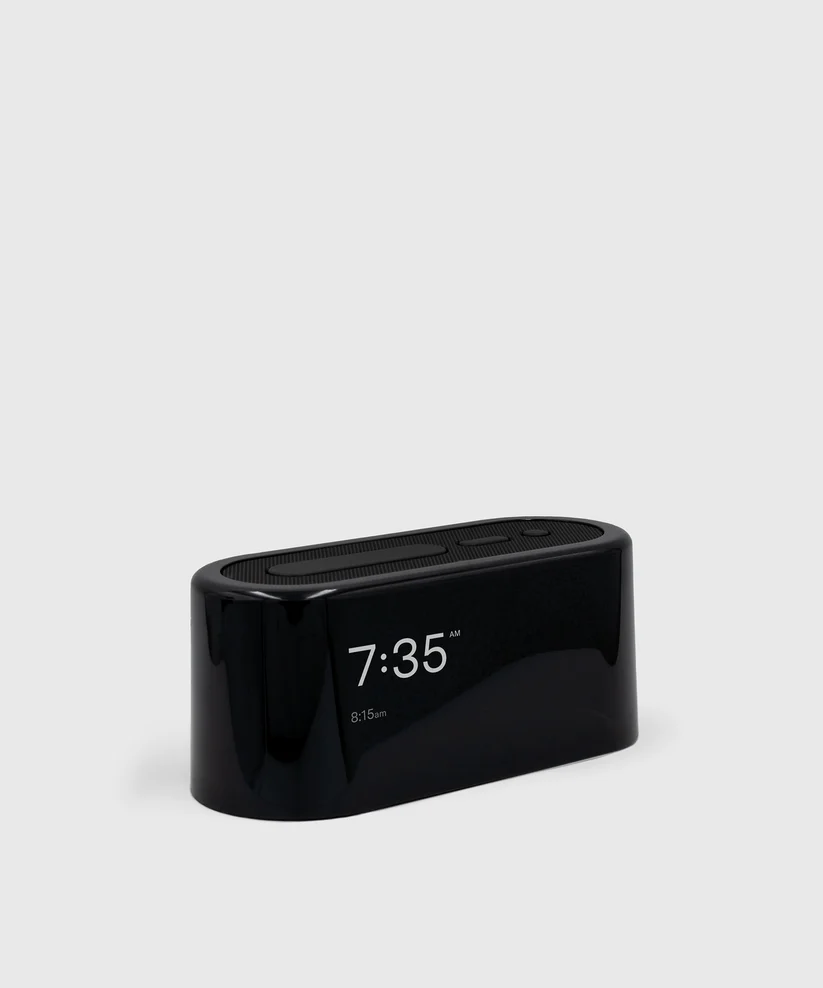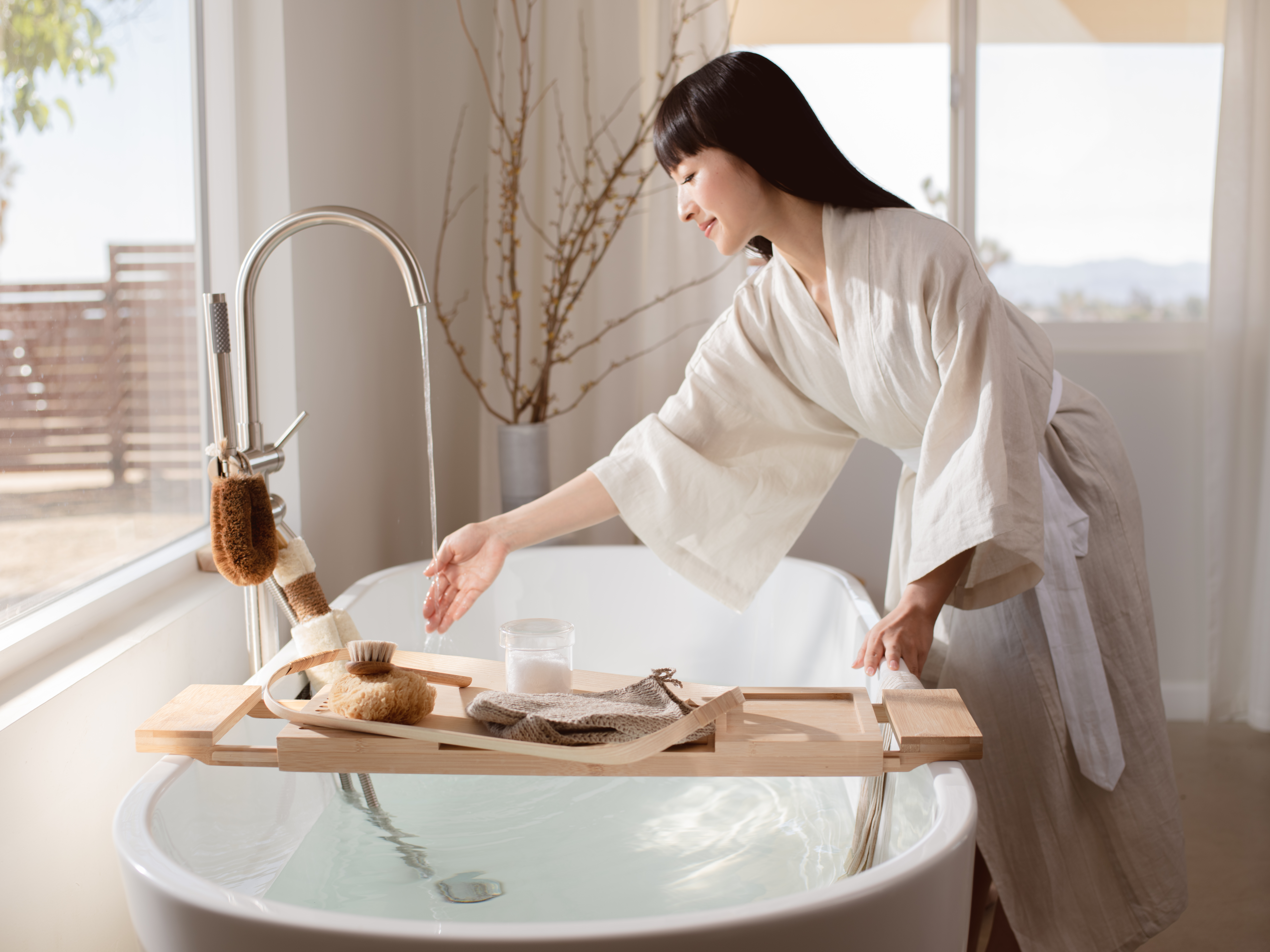How to Tidy Your Sleep


How well did you sleep last night? Articles on “sleep hygiene,” or the habits and environmental factors that create a good night’s sleep, have risen in popularity since 2020, for good reason. Many of us toss and turn at night, missing out on those much-needed REM cycles. In fact, at least 35% of Americans log less than the recommended hours of sleep per night.
The reason for our collective sleep deficit is complicated. Causes can vary from too much screen time to late-afternoon caffeine to anxiety about the world to the temperature of our bedroom — or all of the above. And, if you’ve spent time researching how to get better sleep, you’ve likely felt overwhelmed by all the advice.
Experts say this confusion about sleep hygiene is entirely natural. “[H]uman beings are the only animals in all of nature that regularly deny ourselves the sleep we require,” says Loftie, the team behind Night School, a three-week course designed to teach people how to get better sleep. “That means evolution has never before had to address such behavior.”
“The reason for our collective sleep deficit is complicated. And, if you’ve spent time researching how to get better sleep, you’ve likely felt overwhelmed by all the advice. ”
The following guide uses the KonMari Method™ and expert advice from Loftie and other sleep researchers to cut through the “sleep hygiene” noise. Each of these tips requires little effort yet will positively affect how well you sleep. Mix and match the ones that feel right for your life to build a tidier sleep habit.
Tidy Your Bedroom
That’s right, Marie Kondo’s method can also help you with your sleep hygiene. Researchers at St. Lawrence University found that clutter can keep you up at night, especially for people who are severely disorganized. The tidier your bedroom, the more calming it feels. Look around your bedroom: Does everything there spark joy? Does it soothe you at the end of a long day? If not, it might be time to apply KonMari’s six rules of tidying.
Tidy sleep tip: The Sleep Foundation also recommends simplifying what you do in your bedroom. That means keeping the T.V. in the living room and, ideally, reading or doing other nighttime activities in another room. Keeping sleep and evening activities separate trains your mind that the bedroom is a dedicated space for sleep.
Set a Bedtime Alarm
Humans are creatures of habit, and our bodies thrive when they’re on a consistent schedule. That’s why the first “sleep task” Loftie assigns to its Night School students is picking a realistic, recurring bedtime — seven days a week.
“Your body runs on a 24-hour sleep cycle called your Circadian Rhythm,” Loftie explains, “Changing it by even one hour can lead to observable changes in cognitive function.”
Loftie recommends setting a “wind-down” alarm, so you don’t lose track of when to start your bedtime routine. And skip the Sunday morning snooze sessions. You’ll want to wake up at the same time — even on weekends! — to keep your sleep consistent.

Sleep Colder
One of the most common sleep hygiene questions is: Is it better to sleep warm or cold?
The answer is: Colder than you might expect. Most of us keep our bedrooms warmer than experts recommend, which doesn’t help our sleep. According to the Cleveland Clinic, the ideal temperature for a good night’s rest is 60 to 67° F (15 to 19° C), which creates a cave-like atmosphere that is “cool, dark and quiet.”
Lower the Lights
You’ve likely read that you should stop looking at screens at least 30 minutes before bed, but experts also recommend lowering all the lights in your home at night. By dimming your home, you encourage your body to tap into its natural Circadian Rhythm and kickstart your body’s production of melatonin, the hormone that promotes sleep.
Tidy sleep tip: In terms of light while sleeping, yes, blackout curtains work. If your room doesn’t have them, sleeping with an eye mask is the next-best alternative.
Leave Your Phone in Another Room
Studies have found that as many as 71% of Americans sleep with their phones in the bedroom (the same study found that 3% of us sleep with them in our hands). Worse still, researchers have found that phones in the bedroom negatively affect the quality of intimacy between couples.
According to Loftie, late-night scrolling isn’t only keeping us up at night, it’s affecting the quality of our sleep. “When the brain is subjected to incessant stimulation, it goes into fight-or-flight mode,” Loftie writes. “Cortisol, a stress hormone, is released, and the production of melatonin, a hormone that controls the sleep-wake cycle and is created in response to darkness, is suppressed. It’s the opposite of what we need to achieve a restful night’s sleep.”
There’s a simple solution, albeit one that might make you anxious at first: Leave your phone in another room at night. If you rely on your phone alarm, replace it with a smart clock such as the one from Loftie. This tip has an added benefit: It helps create a more mindful morning routine that doesn’t involve scrolling as soon as you wake.
Take a Hot Bath or Shower Before Bed

Do you tend to shower in the morning? Consider switching to the evening. Turns out, there’s a scientific reason why a hot bath calms you and why parents often bathe babies before bedtime. A warm soak increases your body temperature; then, as you move from your bathing ritual into the remainder of your bedtime routine, your temperature begins to cool to “sleeping temperature” (see tip 02 above). That signals to the body (and mind) that it’s time to sleep.
If you Can’t Sleep, Get Out of Bed
According to Harvard Medical School, lack of sleep and anxiety can create a vicious cycle. Sleep deprivation heightens our stress and anxiety, but most of us also become anxious when we can’t sleep at night, and on and on. It may sound counterintuitive, but sleep researchers recommend you get out of bed when you’re struggling to sleep to avoid the anxiety spin. Head for the couch with a book — chances are, you’ll begin to feel tired again soon.
Switch Up Your Sleep Position and Style
Are you a side, back or stomach sleeper? If you’re struggling to get REM sleep, it might be time to switch up your sleep style. Experiment with these ideas:
- You can cut down on snoring (which disrupts everyone’s sleep!) by sleeping on your side.
- If you’re prone to back pain, however, you should avoid any twists of the spine by sleeping on your back or stomach.
- Early research shows that, for stomach sleepers, it might be better to sleep without a pillow entirely.
Last but not least, some of us may find it beneficial to sleep naked — particularly if you sleep hot — because it helps regulate body temperature.
Tidy sleep tip for side sleepers: Ever wondered which side is best? Believe it or not, research suggests that sleeping on your left side is better for overall health, including digestion!
Sleep hygiene is complicated, but like most self-care, making incremental changes over time adds up. Start with small changes to improve your sleep each night, and we hope you enjoy many joy-sparking dreams.







